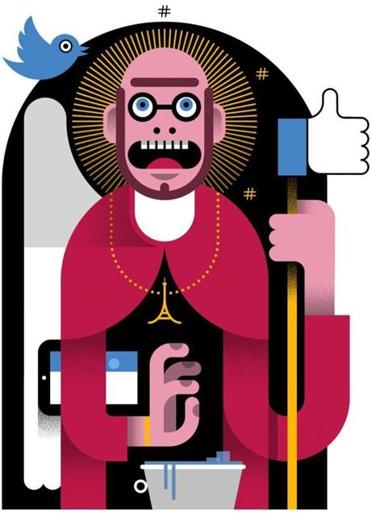Are you eager to tell the world how morally righteous and virtuous you are? Do you want to increase your perceived social capital by broadcasting how much you believe the "right" things? Do you want to be seen as a champion of the poor, the weak and all the other good causes? Before, this would require an actual effort of going out and actually do some good. But now, with virtue signalling, the joys of moral superiority are just one click away!
The marvels of technological progress and enhanced human communication have made it incredibly easy for us to express ourselves. Our identities and personalities don't exist exclusively in our physical world of our friends and family. In fact, they are more and more dependant on our virtual avatars. We broadcast ourselves through the media we consume and share.
And one very interesting phenomena that comes out of this interplay between communication technologies and identity politics is the concept of virtue signalling. According to Wikipedia "virtue signalling is the expression or promotion of viewpoints that are especially valued within a social group, especially when this is done primarily to enhance the social standing of the speaker. For example, expressing a hatred of the right-wing newspaper Daily Mail might be an example of virtue signalling among the British left".
And we have only to open our Facebook feeds to witness the proliferation of virtue signalling in all specters of society, from respected news outlets to the industries of music, gaming and much more. Comment sections are sometimes battlegrounds in which people often battle for the holier-than-thou status, particularly on posts that relate to perceivedly controversial issues.
In the echo chamber of the world-wide-web, in which everyone wants more visitors and likes to their websites, many stories and articles become open invitations for those desperately eager to signal their moral virtue to their peers. The end-cause of virtue signalling is generally about the individual who signals, rather than the signaled cause. So, whether it is the insane amount of free publicity given to Donald Trump by those who love to say they hate him, the neverending search for injustices in which to be the champion of whoever is weak and opressed that week, feeding starving children with likes or bashing on creationists, the fact is that virtue signalling serves the one who signals, and rarely the cause in itself. Just like it happened with Christianity throughout history, for example, the struggle was less about being pious, rather it was more about appearing pious - the Internet and social media have made us all into the preachers of our virtual-selves.
 NICHOLAS LITTLE FOR THE BOSTON GLOBE
NICHOLAS LITTLE FOR THE BOSTON GLOBE
Virtue signalling is like a new climatological phenomena in the next nature of the Internet. One may agree with a news article about reducing unemployment benifits - but one will not openly like it, because it does not signal moral virtue. Therefore, virtue-signalling creates a self reinforcing tendency to make media content migrate towards the signalling of morality. It's not only Earth's climate that is changing, also the climate of the Internet is doing so. Information and identity are coming closer and closer together, and virtue signalling is just one symptom.
So, the next time you open your Facebook feed, try to identify what is virtue signalling and what is not. Then, based on what you see, you can probably decide how much of a "good" person you actually are. Aren't we all?
Sources: Spectator, The Guardian, The Boston Globe.
Image: Nicholas Little For The Boston Globe

Share your thoughts and join the technology debate!
Be the first to comment